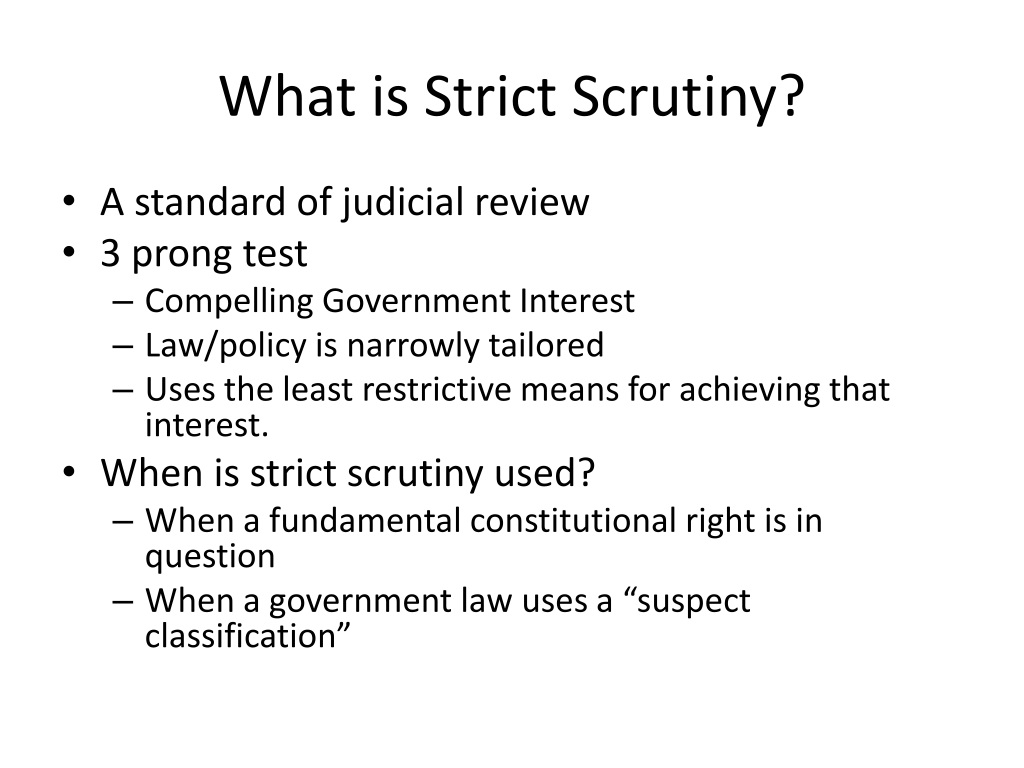


#STRICT SCRUTINY REFERS TO LICENSE#
The Fourteenth Amendment requires a state to license a marriage between two people of the same sex and to recognize a marriage between two people of the same sex when their marriage was lawfully licensed and performed outside the state. President and Fellows of Harvard College (2023)Ĭollege admissions programs violated the Equal Protection Clause when they lacked sufficiently focused and measurable objectives warranting the use of race, unavoidably employed race in a negative manner, involved racial stereotyping, and lacked meaningful end points. Rational basis review provides the standard when no suspect or quasi-suspect classification is involved, such as when the government imposes economic regulations.īelow is a selection of Supreme Court cases involving equal protection, arranged from newest to oldest. Intermediate scrutiny is usually triggered by a “quasi-suspect classification,” such as gender or legitimacy. Strict scrutiny is usually triggered when a government action involves a “suspect classification,” such as race, religion, national origin, or alienage (lack of citizenship). Rational basis review: the challenger must prove that the government action is not rationally related to a legitimate government interest.Intermediate scrutiny: the government must show that its action furthers an important government interest by using means that are substantially related to that interest.Strict scrutiny: the government must show that its action furthers a compelling government interest and is narrowly tailored to achieve that interest.Over time, courts have developed three general tiers of scrutiny for reviewing equal protection challenges: While the Fourteenth Amendment applies only to the states, courts have determined that equal protection principles implicitly apply to the federal government as well. Constitution provides that no state may deny to any person within its jurisdiction the equal protection of the laws. The Equal Protection Clause in the Fourteenth Amendment to the U.S.


 0 kommentar(er)
0 kommentar(er)
